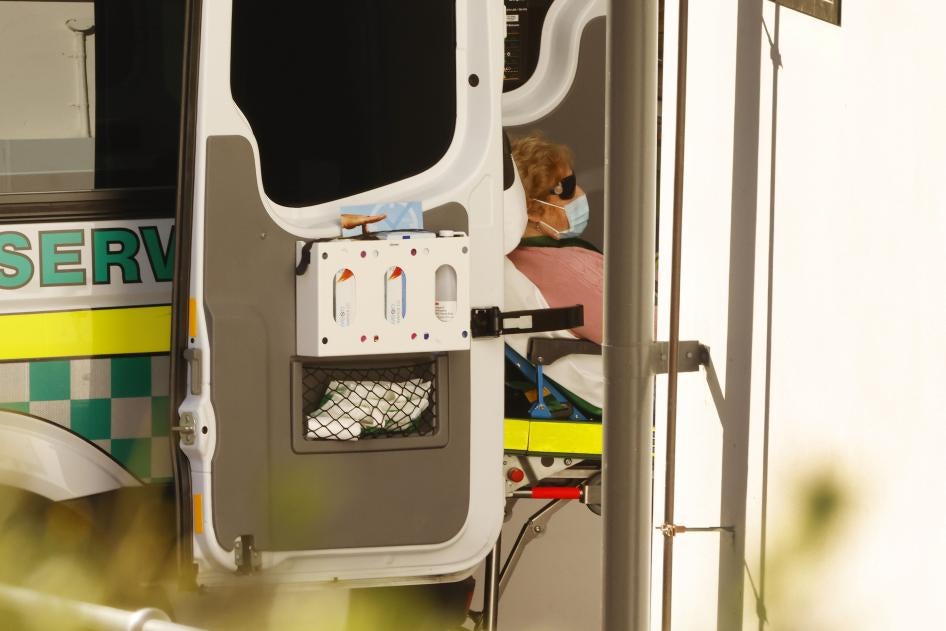The Omicron wave has further exposed the crisis in Australia’s aged care sector with staffing so short, that workers’ unions are calling for the government to deploy the army to assist. Meanwhile, reports are emerging of residents missing out on medication, food, and water.
There are currently nearly 14,000 active cases of Covid-19 among aged care residents across 1,261 aged care facilities in Australia. Many aged care workers are furloughed, with more than 16,700 staff reported to have Covid-19.
A United Workers Union survey of more than 900 aged care staff revealed that some older people are missing out on critical care needs. The Guardian has reported that some facilities have asked residents’ family members to assist with care, including nursing and medication. Human Rights Watch has documented how pandemic-related staffing shortages may contribute to neglect and harm of older people in nursing homes.
Carolyn Smith, aged care director at the United Workers Union told me that “the staff are really pushing themselves to make sure that basic care gets done, but what is absolutely getting missed is the ability to treat people with dignity and respect and take some time to care for them and treat them like a human being.”
Aged care workers are calling for regular access to testing and appropriate personal protective equipment (PPE), as some report being asked to work even when sick. Some staff who are in contact with Covid-19 cases are also now expected to return to work. There are longstanding concerns with infection control at Australian nursing homes, and when sick aged care staff feel pressured to work it puts older people’s health at risk.
In March 2021, the Royal Commission into Aged Care Quality and Safety found Australia’s aged care system to be understaffed and the workforce underpaid and undertrained. However, the Australian government has not committed to fully implementing the Royal Commission’s recommended minimum staffing times for qualified staff in aged care facilities.
The Australian government should respond to the crisis in aged care by ensuring adequate access to rapid antigen tests and appropriate PPE for nursing homes. It’s time the Australian government address acute issues of insufficient staffing and training in aged care to meet the critical care needs of older people in Australia.










